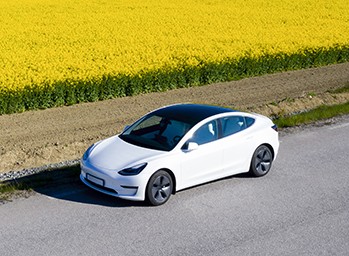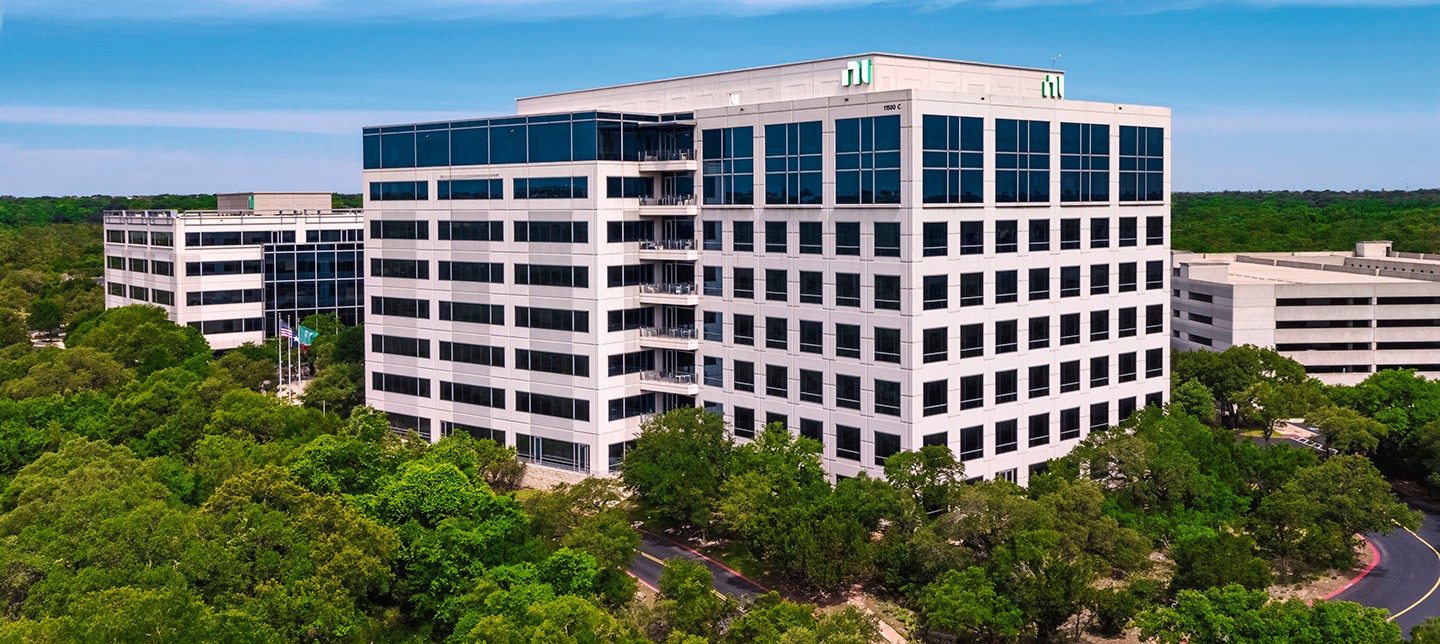
Addressing Climate Change Challenges: Can Electric Vehicles Help?
Earth is heating up, and vehicle emissions are partly to blame. Including electric vehicles in the ecosystem of solutions may help alleviate the climate change crisis.

The climate crisis is the most urgent problem of our time. Rapidly rising temperatures are increasing drought, wildfires, crop losses, and water shortages. This warming and other intrusive human activity also are degrading ecosystems and decreasing biodiversity—the support system for our lives and livelihoods. These changes affect the long-term sustainability of NI and our customers’ operations, making this a critical business issue. Indigenous communities, communities of color, and low-income communities are disproportionately affected by these changes, making this a critical social justice issue as well.
The good news is, there is still time for restorative action if we collectively focus our creativity and innovation. The science makes it clear that the world needs to reach net-zero emissions by midcentury to avoid the worst of climate change. As problem-solvers who follow science, we at NI are committed to doing our part by setting a new Corporate Impact goal:
By 2030, we will become a climate-neutral company with an ongoing commitment to protecting biodiversity each year.
This is one of NI’s 15 Corporate Impact goals we are working to achieve by 2030 in the areas of Changing the Faces of Engineering, Building an Equitable and Thriving Society, and Engineering a Healthy Planet. Our Corporate Impact Report, outlines our progress toward these goals over the last year. Our goals were designed to be iterative, and our new climate neutrality goal is a measurable, targeted update to the commitment we originally set to reduce greenhouse gas (GHG) emissions and conserve natural resources.
What is Climate Neutrality?
Climate science terms can be confusing—especially when those having different definitions are used interchangeably. For NI, climate neutrality means our ambition is to operate in a way that produces no net GHG emissions. This goal includes our Scope 1 and Scope 2 emissions.
Scope 1 emissions are direct GHG emissions that occur from sources that NI controls or owns, such as our office and manufacturing facilities. Scope 2 emissions are indirect GHG emissions associated with the purchase of electricity, steam, heat, or cooling.
To achieve no net GHG emissions, we will reduce our own Scope 1 and 2 emissions to the maximum extent possible and then neutralize the remainder via certified nature-based offsets. These are validated projects that remove carbon dioxide from the air while protecting biodiversity, restoring damaged habitats, and promoting climate justice.
We plan to establish interim targets to keep our absolute Scope 1 and 2 emissions reductions on track through the end of the decade.
While our goal is specific to our own operations, we also recognize the importance of addressing our Scope 3 emissions, which are indirect emissions that occur across our value chain, but come from sources not owned or controlled by NI. Examples include business travel, purchased goods and services, and the use of our products.
We are committed to identifying the best ways for us to help others reduce these emissions throughout our value chain. As one example stemming from our 2030 goal to pursue circular design improvements, in 2021, after conducting a lifecycle analysis of NI products’ environmental impact, we identified reducing product energy intensity as a top priority.
How Will We Protect Biodiversity?
In addition to investing in certified nature-based offsets to neutralize any emissions we cannot eliminate entirely, we will support other projects that protect biodiversity. Some of these may be in our communities, and some may be right on our own campuses.
For example, we have a goal that, each year through 2030, we will design 100 percent of NI’s new buildings to LEED and WELL standards, which include provisions to protect surrounding habitats. We have three LEED-certified buildings and three others built to LEED standards (in Penang, Malaysia, and Debrecen, Hungary). More than 60 percent of our Austin campus is in its original, natural state, with a healthy functioning ecosystem that is home to native wildlife species including deer, foxes, and herons. In Debrecen, we installed falcon- and hawk-shaped silhouette stickers on windows to help reduce bird deaths from collisions and placed bird nesting boxes in the campus’s small forest.
How Can NI’s Products, Customers, and Partners Mitigate Climate Change?
In addition to taking responsibility for NI’s carbon footprint, we also see opportunities to use our products and services to help mitigate the effects of climate change.
If the world is to achieve its climate goals, decarbonization must accelerate. Decarbonization requires both reducing GHG emissions and capturing emissions from the atmosphere and storing them—either using natural sources such as forests or carbon-capture technologies. As a test and measurement company, NI can help accelerate the related innovation. We will engage with our customers to advance green technologies and partner on climate-related projects.
Electric vehicles are a key focus area in which we’ve made many recent investments, such as our 2021 acquisition of NH Research LLC (NHR) and entry into an agreement to purchase the EV systems of Heinzinger electronic GmbH and a collaboration with D&V Electronics.
This is further supported by NI’s other 2030 goals, including our commitment to discount or donate products to organizations developing green technologies. Paired with our commitments to volunteering, we see opportunities to be connectors, enabling new opportunities to Engineer a Healthy Planet.
To learn more about our progress toward our 2030 Corporate Impact goals, read our Corporate Impact Report.
An NI Partner is a business entity independent from NI and has no agency or joint-venture relationship and does not form part of any business associations with NI.